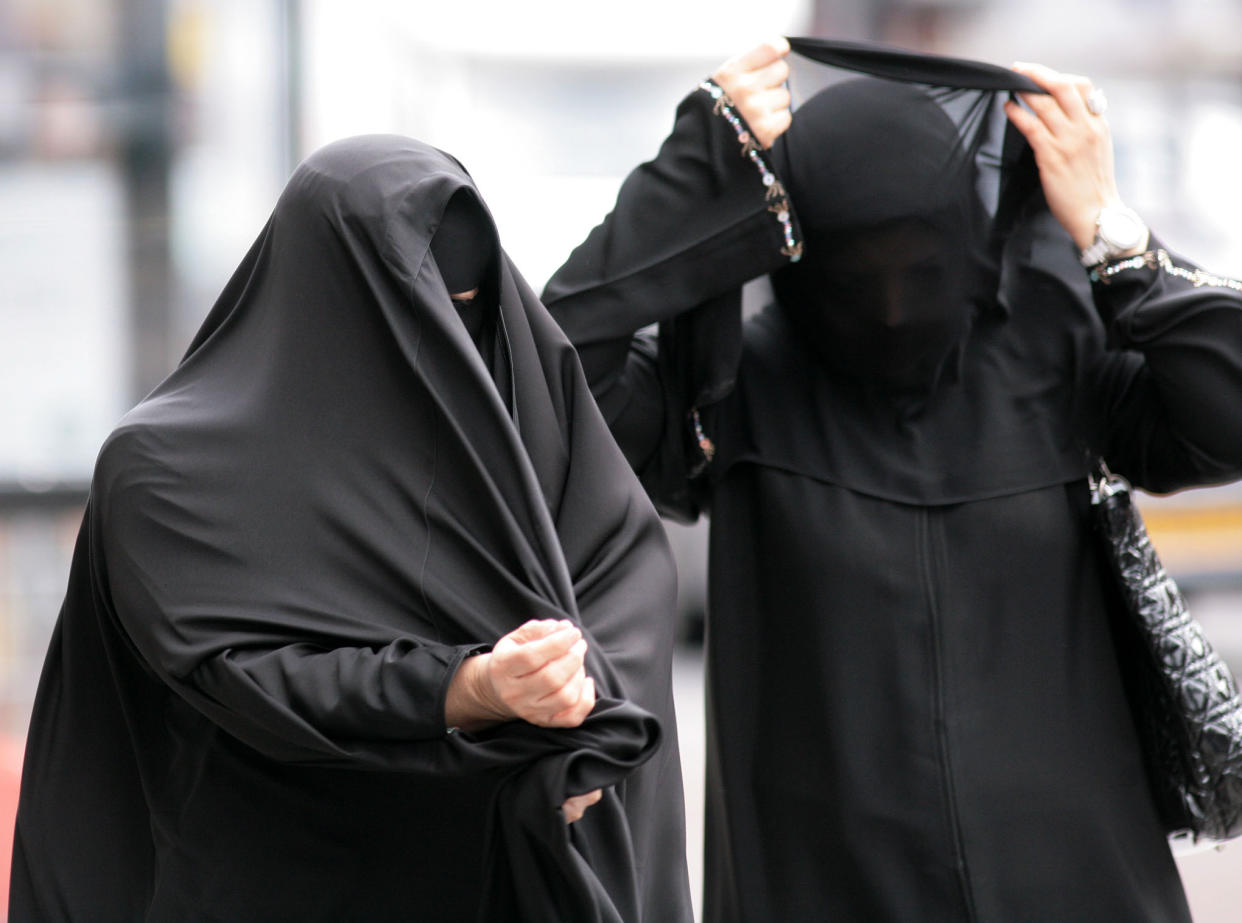Denmark becomes latest European country to BAN the burqa (and all 'head-covering garments')

Denmark has become the latest European country to ban face-covering garments like burqas – with those breaking the law risking a £120 fine.
Danish MPs approved the law presented by the Scandinavian nation’s centre-right government coalition.
The government said the law is not aimed at any religions, as it bans all garments which cover the face.


The new law does not ban headscarves, turbans or the traditional Jewish skull cap.
However, the law is popularly known as the “Burqa Ban” and is mostly seen as being directed at the dress worn by some conservative Muslim women.
Few Muslim women in Denmark wear full-face veils.
MOST POPULAR TODAY ON YAHOO
Angry residents throw paint over cars parked outside their homes near Manchester Airport
Headbutted over an UMBRELLA: Police hunt thug who attacked man after being brushed by brolly
Blogger stuns internet with huge eyebrows which cover her entire forehead
British holidaymaker dies after ‘falling 50ft from ledge’ in Turkish airport
Pilot who died in helicopter crash named as Lord Lieutenant of North Yorkshire Barry Dodd
Justice Minister Soeren Pape Poulsen said it will be up to police officers to use their “common sense” when they see people violating the law that comes into force on August 1.
The law allows people to cover their face when there is a “recognisable purpose” like cold weather or complying with other legal requirements, such as using motorcycle helmets under Danish traffic rules.
First-time offenders risk a fine of 1,000 kroner (£120). Repeat offences could trigger fines of up to 10,000 kroner (£1,200) or a jail sentence of up to six months.
Anyone forcing a person to wear garments covering the face by using force or threats can be fined or face up to two years in prison.
Austria, France and Belgium have similar laws.

 Yahoo News
Yahoo News 
